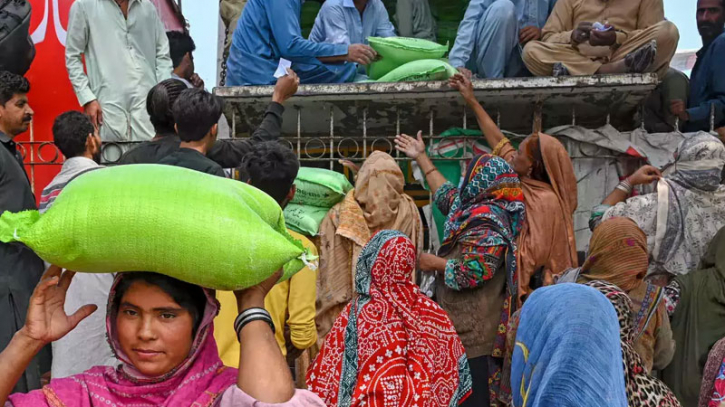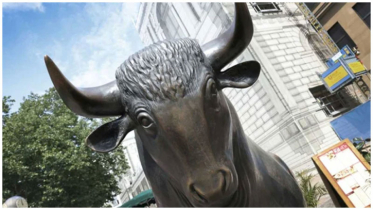Pakistan's July inflation surges to 28.3%

Monthly inflation of Pakistan has surged to 28.3 per cent last month, which is significantly higher than market expectations of 26 per cent. The increase in the consumer price index (CPI) inflation has raised concerns among economists and policymakers, especially as it comes in the first month of the current fiscal year 2024.
The rise in inflation has been attributed to several factors, with the most significant contributors being the soaring prices of electricity, essential food items like wheat, wheat flour, sugar, rice, chicken, and potatoes, and the quarterly upward revision in house rents. Additionally, the recent hike in petrol and diesel prices (Rs19/litre and Rs19.5/litre respectively) for the first 15 days of August is likely to impact inflation readings for the month. Chances are that the price of petroleum will be increased again for the last 15 days of August as well. The global increase in energy prices further exacerbates the situation, and since Pakistan relies heavily on energy imports, it is vulnerable to international market fluctuations.
Ismail Iqbal Securities, Head of Research, Fahad Rauf projected that inflation would decelerate to 26 per cent in August. However, there are concerns about potential anomalies in the increase in the base tariff of electricity that may have contributed to the higher inflation figure. Addressing these anomalies and ensuring effective policy implementation are crucial in curbing inflation and promoting economic stability, he said.
The inflation number for August holds significance as it will reveal whether inflation is on a downward trajectory, he said. “I hope the inflation reading will gradually come down. However, if the rate of inflation persists at high levels for the current month of August as well, it may prompt the central bank to consider increasing its key policy rate in the September monetary policy review, which currently stands at a record high of 22 per cent,” said Rauf. The policy rate serves as a crucial tool utilised by central banks worldwide to control inflation readings and regulate economic conditions.
The Pakistan Bureau of Statistics (PBS) reported a CPI inflation reading of 28.3 per cent for July, following the State Bank of Pakistan’s (SBP) projection that inflation would gradually taper off to an average of 20-22 per cent for the full fiscal year (FY24), down from 29 per cent in FY23. Based on this projection, the SBP maintained its key policy rate at 22 per cent for the next six weeks.
On a month-on-month basis, inflation increased by 3.5 per cent in July 2023, compared to a decrease of 0.3 per cent in the previous month and an increase of 4.3 per cent in July 2022, according to PBS. While there has been a reduction in inflation from its peak of 38 per cent in May 2023 to 29.4 per cent in June, it remains a pressing concern, hampering economic growth and worsening the ongoing economic crisis.
Rauf pointed out that the inflation rate for July decreased to 28.3 per cent, compared to 29.4 per cent in June. He recalled that SBP Governor Jameel Ahmad expressed optimism that inflation will gradually decrease during the first half (Jul-Dec) of the current fiscal year and further decline in the second half (Jan-Jun), averaging out at 20-22 per cent in FY24.
Ahmad assured that the central bank has factored in the increase in electricity base tariffs and likely gas price hikes for the year in its full-year inflation projections.
However, if inflation persists at high levels, the central bank may consider revising its policy rate. The current high inflation rate, coupled with the existing key policy rate, has become a significant hindrance to economic activities, limiting growth to a range of 2-3 per cent in FY24.
The persistent increase in commodity and service prices has caused hardships for businesses and households, leaving many industries partially or completely shut down and resulting in millions of job losses.
The SBP, in its Monday statement, stated that it anticipates national CPI inflation to continue its downward trajectory due to subdued domestic demand, a tight monetary policy stance, favourable global commodity prices, and positive base effects. The monetary policy committee (MPC) projects an average inflation rate of 20-22 per cent for FY24, down from 29.2 per cent in FY23. The MPC’s assessment indicates a gradual decline in inflation during the first half of FY24, with a potential drop below 20 per cent in the second half. Nevertheless, the outlook remains subject to risks arising from domestic and external shocks, such as adverse climate events and global commodity price volatility.
In light of these developments, the MPC will closely monitor unfolding domestic and global developments, and if necessary, recalibrate the monetary policy stance to achieve price stability. Addressing inflationary pressures is vital for economic recovery and the well-being of the nation.
.png)




